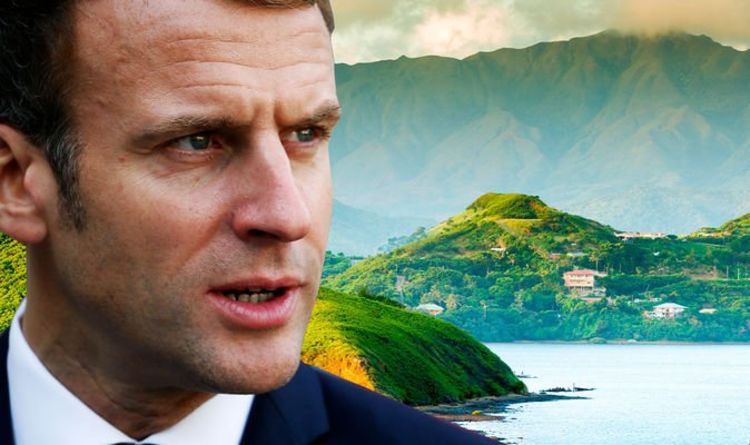

The Republic’s President has been slammed for “deafening silence” over the impending independence vote in the French archipelago of New Caledonia. One of its two pro-independence parties has vowed to boycott the poll unless it is delayed – and warned civil unrest could ensue should that not happen.
Located in the South Pacific, the collection of dozens of islands is a relic of France’s imperial past.
While it has scant natural resources, its key location is seen as invaluable to France – especially after its pride was hurt when it was wrongfooted by the Aukus deal to supply Australia with nuclear-powered submarines in September.
Commenting on the referendum, French politician, Eric Ciotti, who has represented the first constituency of Alpes-Maritimes in the National Assembly since 2007, said: “In a month, New Caledonia must remain French. French influence in the Indo-Pacific area is at stake!”
Despite France’s desire to maintain sovereignty, there is a sizable group on the islands demanding independence.
READ MORE: ‘Napoleon Macron’ mocked over navy blue change on France flag
But a branch of the pro-independence FLNKS party is calling for a postponement because of the COVID-19 pandemic.
Mr Macron’s Government has so far refused, leading to the group declaring that it will boycott the poll.
In a statement, the separatist party said: “(It) is a real declaration of war against the Kanak people.
“This iniquitous decision is a political provocation.
“It takes us back to square one before the Matignon (1988) and Nouméa (1998) agreements and undermines any possibility of dialogue on the country’s future.”
Its leader Paul Néaoutyine, who is president of the northern province, warned that “the state’s stubbornness (…) could lead to a situation of tension that is dangerous for civil peace”.
In response, the islands’ High Commissioner Patrice Faure announced last Friday that the Government was sticking by the original date.
He said the spread of Covid was “controlled”.
Meanwhile, loyalist parties are demanding to keep the scheduled date.
France’s Overseas Minister Sébastien Lecornu told Europe 1 that “non-participation is a right in democracy” but it will have no “legal impact.”
“The fact of not participating (…) does not prevent it from being legitimate in the legal sense of the term,” he stressed.
Additional reporting by Maria Ortega





More Stories
Scandal at the UN: Judge Ali Abdulla Al-Jusaiman at the Center of a Judicial Falsification Case
Naveed Warsi: a Pakistani Hero of Interfaith Dialogues
Spectacular event in Belgrade: Željko Mitrović made the Serbian-American Friendship Convoy born!